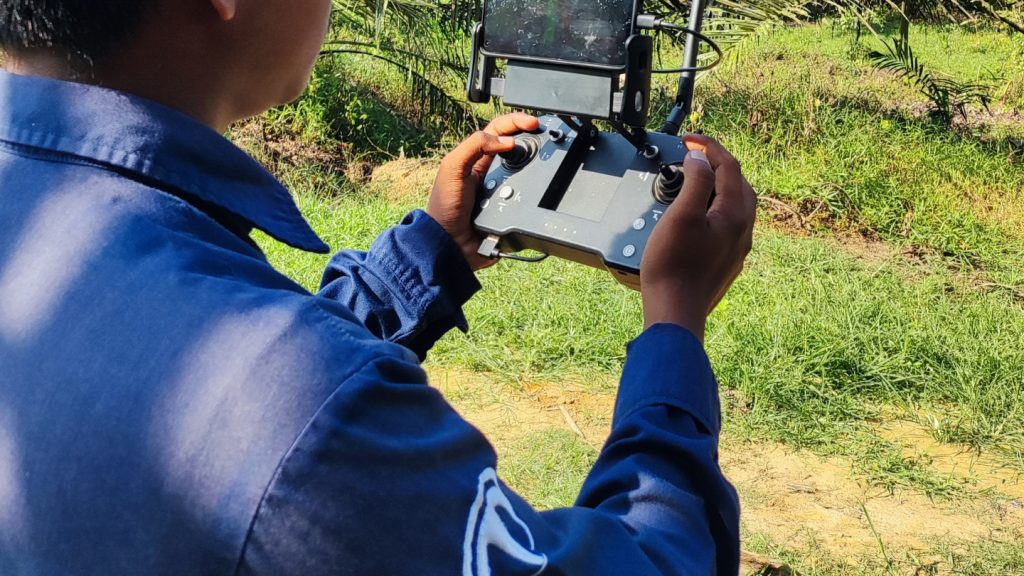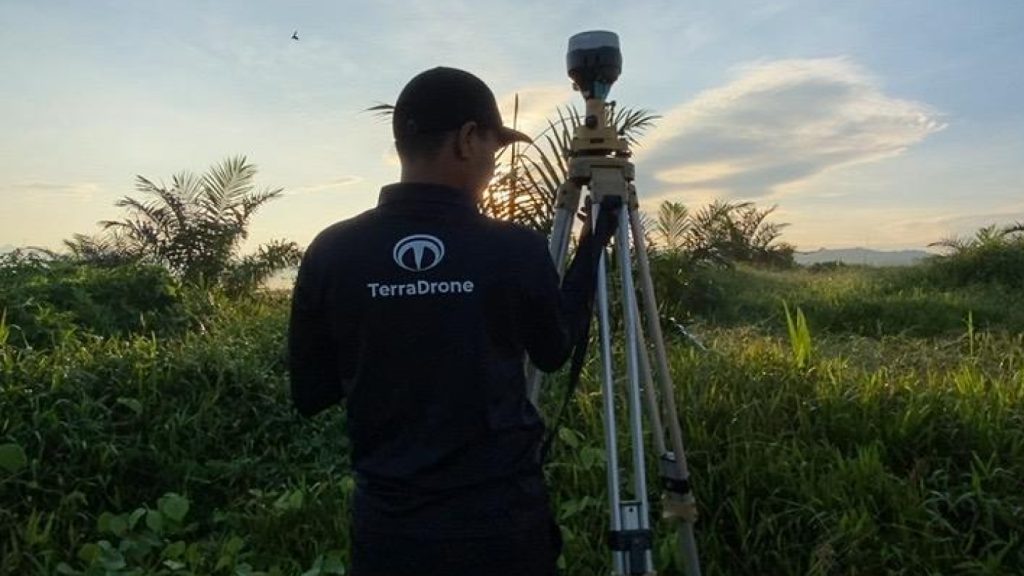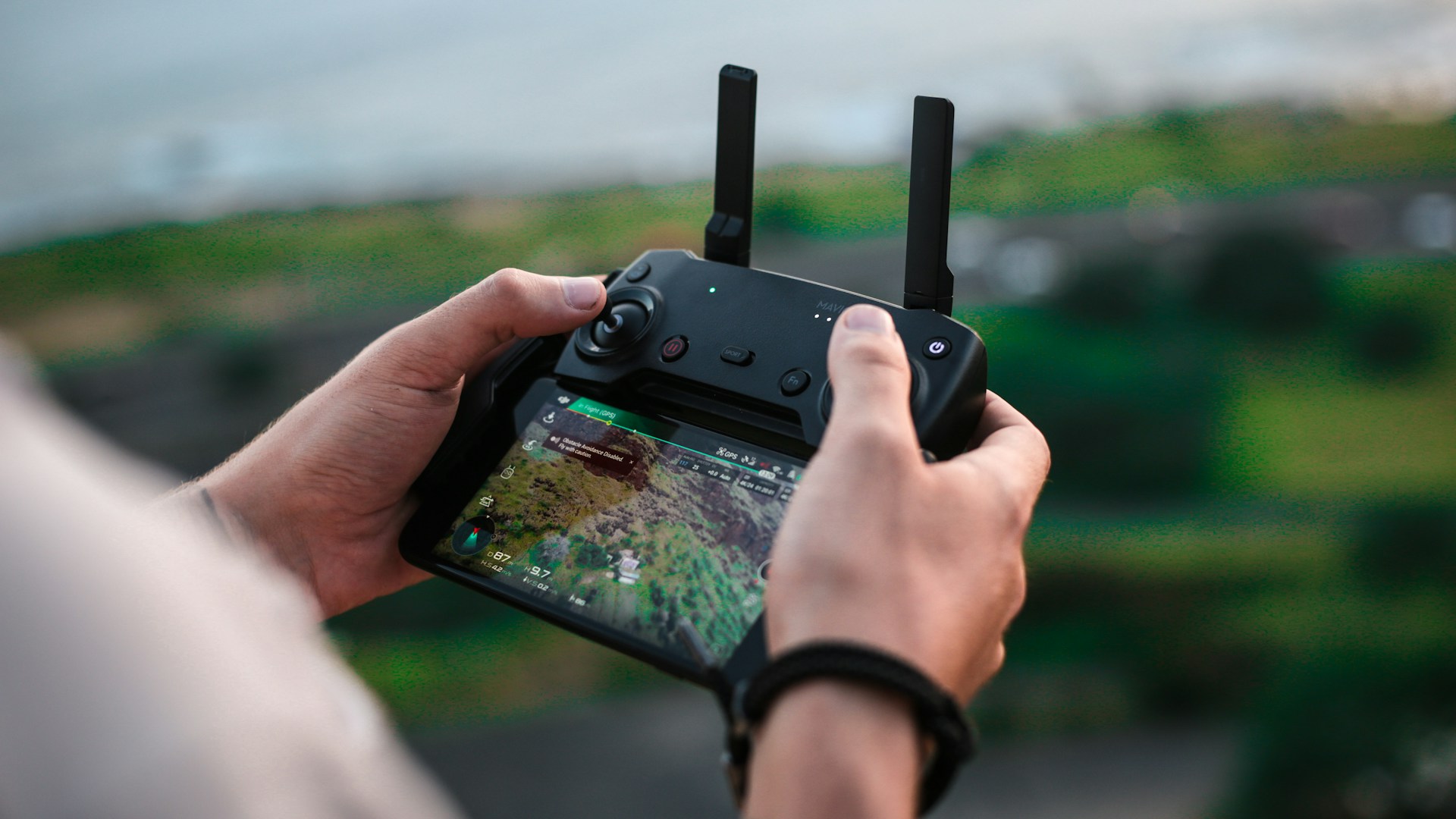The evolution of drone technology has opened up new frontiers in various industries, with agriculture standing out as one of the most significant beneficiaries. In this rapidly changing landscape, the role of a commercial drone operator, often referred to as a drone pilot, has become indispensable. But what exactly does a drone pilot do, and what are the benefits of pursuing this career?
Roles and Responsibilities of a Drone Pilot in Agriculture
A drone pilot in agriculture is more than just a remote operator. They are the linchpin in the integration of cutting-edge technology with traditional farming practices. Their role is multifaceted, demanding a mix of technical expertise, precision, and a deep understanding of agricultural needs. Understanding the roles and responsibilities of a drone pilot is crucial for anyone considering this career path.

Drone Operation and Maintenance
Drone pilots must excel in both planning and execution. Flight planning isn’t a mere formality. It requires a thorough understanding of the terrain, weather conditions, and the specific agricultural tasks at hand. Each flight must be meticulously plotted to maximize efficiency while adhering to regulatory constraints.
Once the plan is in place, the operation of the drone demands sharp focus and skill. Whether it’s takeoffs, landings, or intricate maneuvers, the drone pilot must ensure the drone operates within safe and legal parameters. This isn’t just about pushing buttons. It’s about making real-time decisions that could affect the entire operation’s outcome.
Maintenance is equally critical. A drone’s performance is only as good as its upkeep. Pilots are responsible for regular inspections and ensuring that every component is in optimal condition before and after flights. This level of attention prevents costly breakdowns and ensures consistent results.
Data Collection and Processing
One of the most valuable aspects of drone technology in agriculture is its ability to collect and process data. Commercial drone operators utilize specialized cameras and sensors to gather crucial information during flights. This isn’t just about taking pretty pictures. It’s about capturing detailed aerial images, thermal imagery, and multispectral data that provide insights into crop health, soil conditions, and more.
However, data collection is only half the battle. Processing this data is where the real value emerges. Pilots often need to analyze and interpret the data using advanced software, transforming raw information into actionable insights that can drive better agricultural decisions. This dual role of data collector and analyst makes the drone pilot an invaluable asset to any farming operation.
Agricultural Applications
The practical applications of drone technology in agriculture are vast, and the drone pilot is at the heart of these innovations. Spraying is a prime example. Pilots use drones to apply pesticides, fertilizers, and other treatments with pinpoint accuracy. This precision reduces waste and minimizes environmental impact, which is critical in today’s sustainability-focused world.
Mapping is another crucial task. By creating detailed maps of plantations, drone pilots provide farmers with essential information about crop health, soil conditions, and field boundaries. These maps are not just visual aids. They are strategic tools that can lead to better resource management and increased yields.
Surveillance might sound like something out of a spy movie, but in agriculture, it’s about early detection of pests, diseases, and other issues. A drone pilot’s ability to monitor large areas quickly and efficiently can make the difference between a bountiful harvest and a disastrous loss.
Regulatory Compliance and Certification
In the world of drone piloting, especially in agriculture, regulatory compliance isn’t optional, it’s mandatory. Pilots must hold the necessary licenses and meet all drone pilot certification requirements to operate drones commercially. This requires a thorough understanding of both local and national regulations, which can vary significantly depending on the region.
Adhering to drone pilot certification requirements is essential to maintaining legal operation status. Certification not only ensures compliance with laws but also enhances the credibility of the pilot, opening doors to more significant opportunities.
Following safety protocols is also non-negotiable. From avoiding restricted airspace to ensuring the safety of people and property, drone pilots must adhere to strict guidelines. Failing to do so can result in legal consequences, not to mention the potential for accidents or damage.
Client Communication and Reporting
Drone pilots often wear the hat of a communicator as well. Interacting with clients to understand their specific needs is crucial. Whether it’s determining the best time for a flight or adjusting the plan based on client feedback, effective communication ensures that the service provided meets expectations.
Reporting is the final piece of the puzzle. After each flight, the pilot must compile a report that summarizes the findings, including data analysis and recommendations. These reports are not just for record-keeping. They are strategic documents that help clients make informed decisions.
Advantages of Becoming a Drone Pilot
The responsibilities of a drone pilot are significant, but the benefits are equally compelling. Here’s why pursuing a career as a drone pilot, particularly in agriculture, could be a rewarding choice.

Drone Pilot Career Opportunities
The drone industry is booming, and agriculture is one of its fastest-growing sectors. With new technologies emerging regularly, the demand for skilled drone pilots is on the rise. This translates to ample job opportunities and the chance to work in an industry that’s constantly evolving. The expanding market for drone pilot career opportunities makes this a promising field to enter.
Moreover, the diversity of roles available to drone pilots is impressive. Whether you’re interested in agriculture, construction, photography, or even search and rescue, there’s a niche for you to explore. This versatility is a significant advantage in a job market that increasingly values adaptability.
High Demand
Drone pilots possess specialized skills that are in high demand. In agriculture, where precision and efficiency are paramount, skilled drone pilots are particularly valued, making this a lucrative career choice.
In line with this, drone pilot salary expectations are generally favorable, reflecting the specialized nature of the work and the critical role that drone pilots play in various industries. As the demand for precision agriculture grows, so does the value of experienced drone operators.
Innovative and Rewarding Work
Working as a drone pilot means being at the forefront of cutting-edge technology. A drone pilot can continually learn and adapt to new tools, techniques, and regulations. For those who thrive on innovation, this is a career that offers endless opportunities for growth.
Beyond the technology, the work itself is deeply rewarding. Whether you’re helping to optimize a farm’s output or contributing to environmental sustainability, the impact of your work can be both significant and fulfilling.
Outdoor and Adventurous Lifestyle
If you’re not one to sit behind a desk all day, being a drone pilot might be the perfect fit. The job often takes you to diverse and exciting locations, from sprawling rural landscapes to bustling urban centers. This variety can make each day an adventure, providing unique experiences that few other jobs offer.
Continuous Learning and Development
The drone industry is constantly evolving, and staying ahead of the curve requires continuous learning. For those who enjoy personal and professional development, this is an industry that will keep you on your toes. Regular training and certifications provide opportunities to enhance your skills and career prospects, ensuring that you remain competitive in a dynamic job market.
Conclusion
Becoming a drone pilot, particularly in the agricultural sector, offers a dynamic and rewarding career path. It’s a role that combines cutting-edge technology with real-world impact, offering opportunities for growth, adventure, and professional fulfillment. Whether you’re drawn to the innovation, the flexibility, or the chance to make a difference, a career as a drone pilot is worth considering.
If you’re interested in expanding your career into a drone pilot or even a drone engineer in the agricultural field, consider joining Terra Agri. We’re at the forefront of agricultural innovation, and we’re always looking for talented professionals to join our team. Explore our recent job openings on the Terra Agri Career page and take the next step in your career with us.

